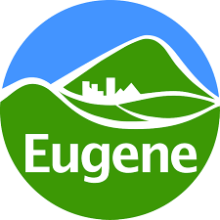Eugene Opens Up Dark Fiber for Commercial Connectivity
Businesses are now finding affordable connectivity in Eugene, Oregon, through a partnership between the city, the Lane Council of Governments (LCOG), and the Eugene Water and Electric Board (EWEB), reports the Register-Guard. A new pilot project has spurred gigabit Internet access in a small downtown area for as little as $100 per month.
According to the article, the city contributed $100,000, LCOG added $15,000, and EWEB spent $25,000 to fund last mile connections to two commercial locations. LCOG's contribution came from an $8.3 million BTOP grant.
The fiber shares conduit space with EWEB's electrical lines; the dark fiber is leased to private ISPs who provide retail services. XS Media and Hunter Communications are serving customers; other firms have expressed an interest in using the infrastructure.
Moonshadow Mobile, a firm that creates custom maps with massive amounts of data, saves money with the new connection while working more efficiently.
To upload just one of the large files Moonshadow works with daily — the California voter file — used to take more than an hour. Now it can be done in 77 seconds, [CEO Eimer] Boesjes said.
“This completely changes the way our data engineers work,” he said.
“It’s a huge cost savings, and it makes it much easier for us to do our work. We can do our work faster.”
The upgrade also will help spur innovation, he said.
“We can start developing tools that are tuned into fiber speeds that will be ubiquitous five to 10 years down the road, so that gives us a huge advantage,” Boesjes said.
The upgraded fiber also could bring more work and jobs to Eugene, he said.
“In December one of my customers said, ‘You can hire another system administrator in Eugene and we’ll move this work from Seattle to Eugene if you have fiber,’ and [at that time] I didn’t have fiber so that opportunity went away,” Boesjes said.



